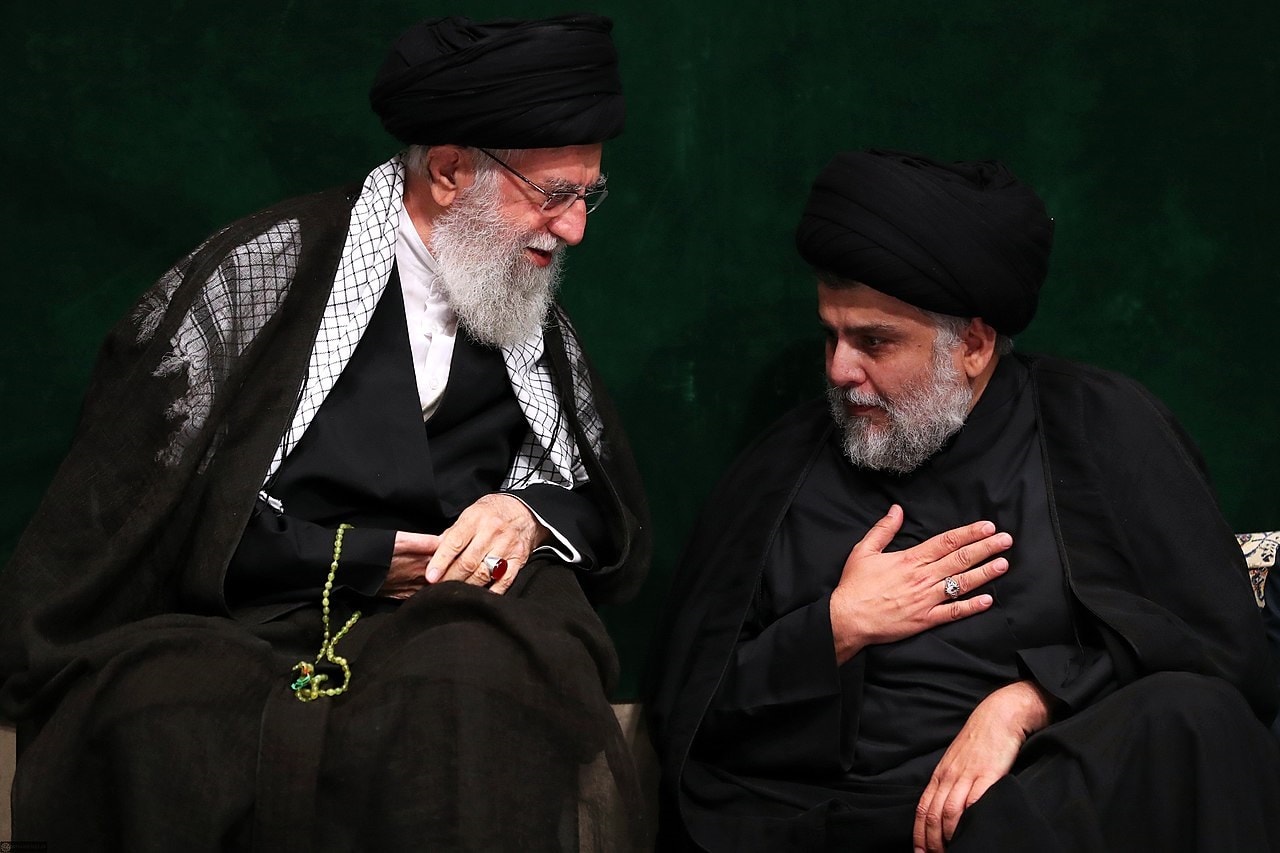Dueling protests swept the streets of Baghdad on Friday. In doing so, they emphasized the rift between the two Shiite centers of power in the country.
Supporters of cleric Moqtada al-Sadr gathered inside the highly fortified Green Zone to demand early elections. They clashed with demonstrators representing Iran-backed militias. Earlier in the week, al-Sadr issued a one-week deadline to the judiciary to dissolve the legislature. Although al-Sadr’s party acquired the most votes in last year’s election, Iran-backed factions refused to allow the cleric’s party to form a government. Nearly 10 months have passed since the election, and Iraq is still experiencing political upheaval. This weekend’s protest and counter-protest are just the latest in a surge of demonstrations over the last year.
Militias Gone Rogue
After al-Sadr won the most votes in October’s election, the Shiite cleric called on the country’s Iran-aligned militias to disband and join his governing party. He specifically asked the Popular Mobilization Forces to “purify” their ranks of the “corrupt individuals” in its organization, according to The Times of Israel. The PMF are understood collectively as Iran-connected militias that function on behalf of the Tehran regime’s interests. Initially formed in 2014 to aid in Iraq’s fight against the Islamic State, the PMF has largely morphed into a lawless militia.
Several PMF umbrella groups have basically gone rogue from Iraq’s security apparatus, including Kataib Hezbollah. These militias are responsible for a slew of rocket and drone attacks targeting U.S. assets in Baghdad, and even for a November 2021 drone attack that targeted the residence of Iraqi Prime Minister Mustafa al-Kadhimi. Although Tehran’s proxies did not claim responsibility for that incident, it is widely understood that the only groups with the weapons used in the attack are part of the PMF.
When the election results were released last year, the Iran-backed groups denounced the outcome as a scam. The PMF’s political apparatus, the Fatah Alliance, dropped more than half of its seats. Hadi al-Amirir, one of the leading pro-Iran figures in Iraqi politics, said the election results were “fabricated,” according to Iraqi-based pro-Iran media outlet al-Aahd. Amirir added that, “We will not accept these fabricated results, whatever the cost.”
Clearly, Iran-linked individuals and groups in Iraq have taken that vow seriously. Almost a year has passed since the elections, and pro-Iran groups refuse to accept the al-Sadr party’s rightful role in power. In June, al-Sadr demanded his lawmakers resign in an unprecedented move made to protest his party’s inability to form a government.
Iraq in Upheaval
Al-Sadr blamed Iran’s malign influence in the country for forcing his departure from parliament. As explained by The Times of Israel, if any seat in Iraq’s parliament becomes vacant, “the candidate who obtains the second-highest number of votes in their electoral district would replace them. In this case, it would make al-Sadr’s opponents from the so-called Coordination Framework, a coalition led by Iran-backed Shiite parties and their allies, the majority. This would allow pro-Iranian factions to determine the makeup of the next government.”
Due to this fact, the cleric has called on his allies to hold off on convening a parliamentary session.
Sadr supporters were met by pro-Iran demonstrators inside the Green Zone on Friday. Those opposed to al-Sadr accuse him and his party of corruption, blaming his loyalists for some of the country’s dysfunction. According to Reuters, some pro-Iran demonstrators carried portraits of Gen. Qassem Soleimani, the revered Iranian commander that was killed in a U.S. air strike in January 2020.
With Iraq’s polity still in upheaval, the future stability of the country appears shaky. In the meantime, Iran-aligned forces will continue to gum up the works of Iraq’s political structure.
Maya Carlin is a Middle East Defense Editor with 19FortyFive. She is also an analyst with the Center for Security Policy and a former Anna Sobol Levy Fellow at IDC Herzliya in Israel. She has bylines in many publications, including The National Interest, Jerusalem Post, and Times of Israel.

